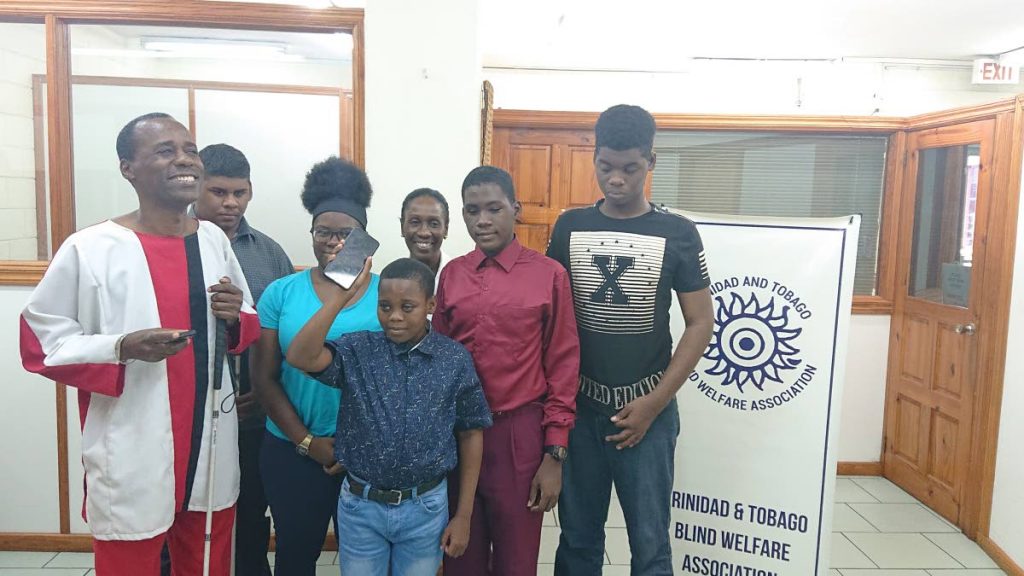Smart phones for visually impaired students

THE TT Blind Welfare Association (TTBWA) is appealing for more accessibility to education for the blind and visually impaired in society.
At a smart phone distribution ceremony at its Port of Spain office yesterday, president Felix Cazoe said more accessibility is needed for the community, as access to information is changing and one such platform is technology.
“We are in the age of artificial intelligence, a wireless society and a global village. For the blind and visually impaired, the only tool that would help us to properly navigate this age is education.”
Earlier this year an association member made a post on Facebook for the donation of used smart phones, that would be repaired, refurbished and reformatted for distribution to its members.
The project was launched on May 8, and welfare officer Lakhan Seepersad said, the public has been generous as over 20 donations were given by both citizens and corporate entities. At the ceremony, six used iPhone 7 sets were given to students by workers of the Central Bank.
This distribution, Cazoe said, comes at a time when government is making amendments to the copyright legislation and others, that would be beneficial to them.
“The education ministry is rolling out its digital platform in schools, and the government has ratified the Americas Treaty and the World Intellectual Property Organisation (WIPO) agreement, making all printed documents available to the visually impaired.”
The students were urged to use the smart phones and its technology to perform their school related tasks and keep abreast of current activities.
Recipient Shakeila Kelly, 17, Arima Central Secondary School, said, “This is a very good opportunity, because it places information at the tip of my fingers. I have challenges seeing on the board, I can now take pictures of the work and look at it in a zoomed format on my time.”
The form five student, who wants to become a chef said, visually impaired students enrolled in the public-school system face many challenges. She told Newsday, “Not everyone is accommodating for our disability. Some years ago, I faced verbal abuse from teachers who did not understand my condition. It becomes frustrating at times.”
Kelly has been diagnosed with Keratoconus is a progressive eye disease in which the cornea thins and begins to bulge into a cone-like shape. She has had several surgeries but is susceptible to becoming completely blind.
Her mother Vanessa Kelly said, there is still a lot more the government can do not just for the blind but other disabilities as well.
“Unless a parent, like myself take things into their own hands very little gets done. I was able to get an aid for her only after speaking directly to the Minister of Education who is also my MP. Teachers are unaware of how to treat with persons with disabilities, such as this.” Samuel Williams, Ariel Lewis, Ryan Khamran, Adel Spence and Jaidon Vincent were the other recipients.


Comments
"Smart phones for visually impaired students"